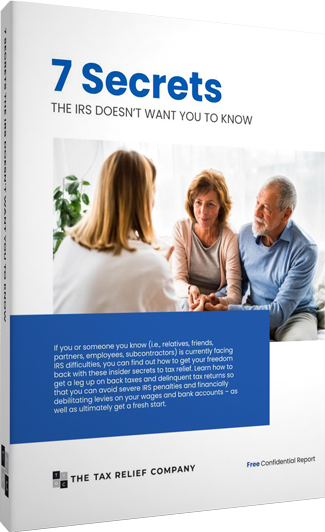Private Collectors and Other Problems Outside the IRS
Third time is a charm… or a nightmare? One year ago the IRS reinstated a program allowing private debt collectors to pursue delinquent taxpayers.
This is nothing new – in fact, it was tried twice before.
Even so, Congress voted in 2015 to restart the program, the legislation for which was buried in the Fixing America’s Surface Transportation Act (FAST Act).
Oh, the Irony
“Usually, the tax professional community will tell clients that the IRS will not call taxpayers and ask them to pay their debt, in full,” relayed Jeff Schneider in his book, Now What? I Got a Notice from the IRS. Help! “However, the Service has contracted with four independent companies that will call taxpayers and ask them, usually directly over the phone, to pay their debt.”

This opens up a can of worms – and the door to even more tax scam calls from crooks stating they are with a private collection agency, authorized by the IRS to collect on a debt.
But Why?
Allowing private collectors to go after delinquent tax bills has a history of generating harassment complaints.
It also has been accused of unfairly burdening those with the lowest incomes.
As reported in Accounting Today in June 2018, 43% of those who were placed into payment plans by these agencies through September 28, 2017 had incomes lower than the IRS allowable living expenses.
Taxpayer Advocate Nina Olson, who conducted the study and provided the results to Accounting Today, stated on her blog that 44% had incomes below 250% of the federal poverty level… this is what the IRS uses to determine economic hardship.
That is extremely concerning.
You would think this should be enough to put a death knell on the program… forever. Am I right?
Now add to it the cold, hard fact of why this program was scrapped twice in the past: It cost more money than it brought in.
And, it’s on track to do it again – for the third time – according to the IRS employee union and reported by Accounting Today.

So the question of why Congress would resuscitate a twice-beaten dead horse stays unanswered. Does the private collection agency industry have a powerful lobby? Is it political payback? After all, these agencies get to keep 25% of what they collect.
The truth is we’ll probably never know why.
Since we are saddled with this situation anyway, let’s get you prepared to deal with it should it happen to you.
How do you know if you’ve been referred to a private collection agency?
“The IRS will give taxpayers and their representative (Enrolled Agent, CPA, or attorney) written notice that the accounts are being transferred to the private collection agencies,” explained Schneider. “The agencies will [then] send a second, separate letter to the taxpayer and their representative confirming this transfer.”
Although the agency will be able to tell you that they are an authorized IRS contractor, they will not (and should not) do the following:
- Ask for payment on prepaid debit cards, gift cards, or iTunes cards (and if they do, hang up… immediately)
- Skirt the consumer protection provisions of the Fair Debt Collection Practices Act
Who are the Agencies?
Only four private collection agencies were given the privilege of getting this business from the IRS:
- CBE – P.O. Box 2217, Waterloo, IA 50704, (800) 910-5837
- ConServe – P.O. Box 307, Fairport, NY 14450-0307, (844) 853-4875
- Performant – P.O. Box 9045, Pleasanton, CA 94566-9045, (844) 807-9367
- Pioneer – P.O. Box 500, Horseheads, NY 14845, (800) 448-3531
What If I Don’t Want to Work with an Agency?
You can request in writing, to the agency, stating that you no longer want to be contacted by them.
You also have the option of enlisting an Enrolled Agent (EA) to handle this (and other tax matters) on your behalf.
With their years of experience and specialized knowledge, EAs can make it all so much easier. They can take the stress off of you by talking to private collection agencies and/or the IRS on your behalf.
************************************************
Jeffrey Schneider, EA, CTRS, NTPI Fellow has the knowledge and expertise to help you reach a favorable outcome with the IRS. He is the head honcho at SFS Tax Problem Solutions as well as an Enrolled Agent and a Certified Tax Resolution Specialist.
************************************************
Now What? I Got A Tax Notice From The IRS. Help! Defining and deconstructing the scary and confusing letters that land in your mailbox. Jeff defines and deconstructs the scary and confusing letters in a fashion that mixes attention to detail with humor and an intricate clarification of what is what in the world of the IRS.
The book is available in paperback and ebook on https://Amazon.com
************************************************
For more on SFS Tax Problem Solutions, visit: http://sfstaxproblemsolutions.com/
For more on SFS Tax & Accounting Services, visit http://sfstaxacct.com/
************************************************
738 Colorado Avenue Stuart, FL 34994
************************************************
Phone: 772-337-1040
************************************************
https://twitter.com/SFSTax/
https://linkedin.com/company/sfs-tax-problem-solutions
************************************************



